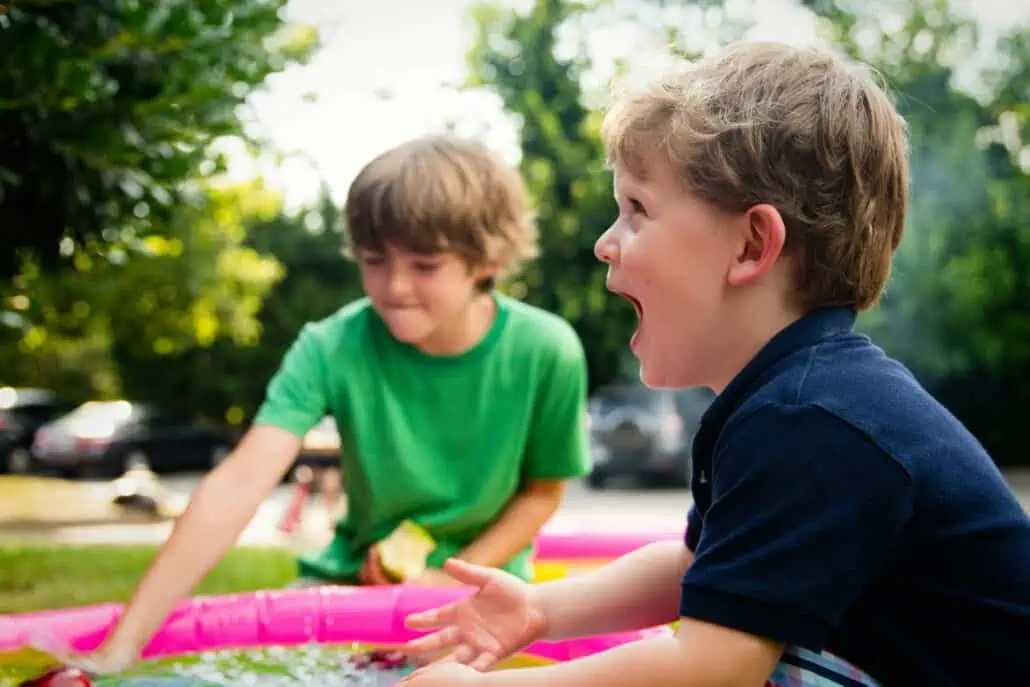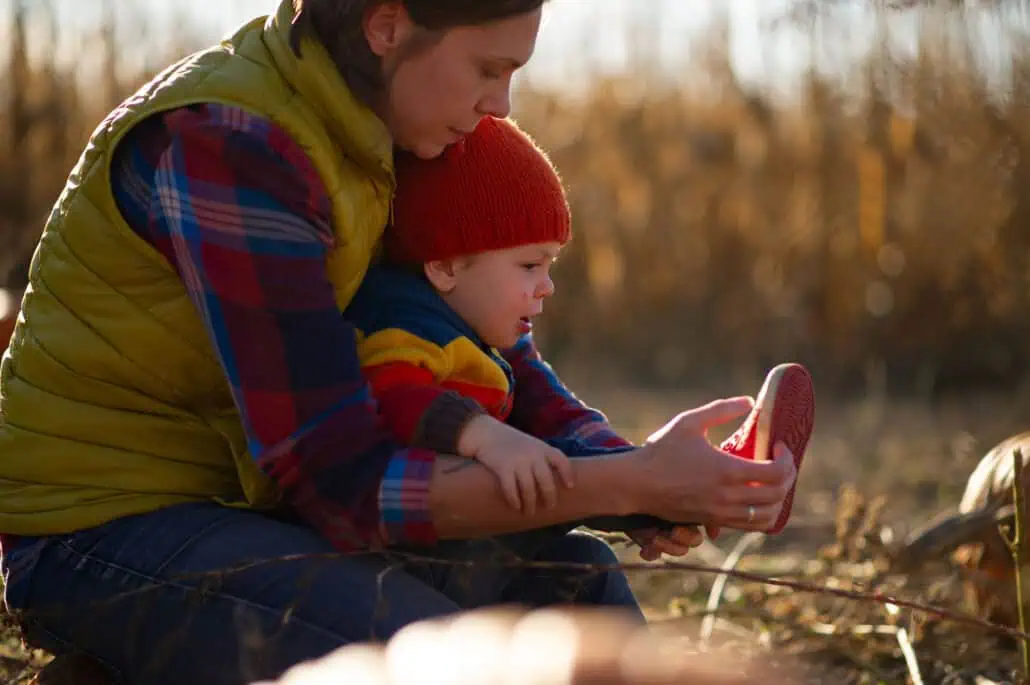What is Play Therapy?
Play therapy is a developmentally appropriate way of working with children by using children’s natural form of communication – play – to solve problems. Play is their language and toys are their words. Play therapy is developmentally appropriate and allows children to gain insight into their behavior while learning and practicing new, more effective ways of interacting with others and managing their emotions. Play therapy is a safe space for children to explore their world and address difficult issues in their lives. By using this approach, children can develop the skills they need to overcome challenges and grow emotionally, mentally and behaviorally.
We Help Kids
We have expertly-trained child counselors and child psychologists to help you and your child. In utilizing child counseling and play therapy, our approach is based on building a relationship with the child based on teamwork, acceptance, trust, nurturing interactions, and attachment. Your therapist will assess your child’s relationships, personality characteristics, goals of behavior and misbehavior, and perceptions of self, others, and how the world works through the lens of their experiences. This can include things like helping kids work through divorce.
We Assist Parents
We assess attachment relationships and use Child Parent Relationship Training to enhance relational patterns and attachment skills between caregivers and children. We very often incorporate (with both kids and adults) psychoeducation about attachment, emotional regulation, and how the brain works and affects emotions and behaviors. We also offer family therapy, so if you’re looking for “family counseling near me“, call us today to learn more!
Should it be needed, we offer psychological testing and evaluation for Autism, ADHD, giftedness, and learning disabilities.
The Child Therapy Process
Every child’s experience in therapy is unique, but most follow a structured process that helps build trust, safety, and lasting change. Here’s what families can expect:
- Intake and Understanding the Child
The process begins with a parent consultation where we learn about your child’s strengths, challenges, family dynamics, and goals. We’ll review developmental history, school context, and any previous evaluations. - Building a Relationship Through Play
Children communicate through play before they can do so with words. In the early sessions, the therapist focuses on building rapport—often through creative play, art, or storytelling—so your child feels understood and empowered. - Identifying Themes and Emotions
As sessions progress, therapists observe play for patterns and behaviors that help to better understand how your child experiences the world. These insights guide interventions for coping skills, emotional expression, and self-regulation. - Collaboration and Check-Ins
Parents are an essential part of the process. We provide regular feedback sessions to share progress, offer parenting tools, and adjust treatment as needed. Collaboration with teachers or other professionals may also be included if you grant consent. - Closure and Transition
Therapy concludes when goals are met or your child is ready for the next developmental stage. We review progress, celebrate growth, and provide tools for continued success at home and school.
- Intake and Understanding the Child
Other Treatment Techniques Beyond Play Therapy
While play therapy is the foundation for younger children, our therapists draw from a range of evidence-based modalities as kids mature and their needs evolve:
Cognitive-Behavioral Therapy (CBT) for Children
Helps children identify unhelpful thought patterns and practice more adaptive responses to anxiety, anger, or sadness.
Trauma-Focused CBT (TF-CBT) or EMDR
Integrates trauma processing with parent participation to support children recovering from difficult experiences.
Mindfulness and Relaxation Training
Simple breathing, visualization, and grounding techniques that teach emotional regulation. Therapists also include The Whole Brained Child and No Drama Discipline by Dr. Dan Siegel as a lens of understanding children and helping parents.
Art and Sand Tray Therapy
Offers nonverbal expression for complex emotions and trauma.
Social Skills Training
Builds empathy, cooperation, and communication skills, particularly helpful for kids with ADHD or autism spectrum traits.
Narrative and Storytelling Approaches
Encourages children to reframe their life story in ways that build resilience and confidence.
Solution-Focused Techniques
Helps identify existing strengths and small steps toward progress.
No commute, no waiting rooms—just real support from the comfort of home.
CHILD COUNSELING FAQs
Below are answers to frequently asked questions about Child Counseling & Play Therapy.
Child Counseling
What skills do parents and families learn?
- Emotion Coaching: Learn how to help your child name, validate, and manage big feelings.
- Consistent Routines: Establish predictable structures around bedtime, meals, and transitions to reduce anxiety.
- Positive Reinforcement: Focus attention on what’s going right, rather than only correcting what’s wrong.
- Modeling Self-Regulation: Kids learn emotional control from watching adults manage stress calmly.
- Collaborative Problem-Solving: Create solutions together with your child rather than relying solely on punishment.
- Co-Parenting Strategies: For separated or blended families, we can help align parenting styles for consistency and cooperation.
What is play therapy?
Play therapy is a developmentally appropriate way of working with children by using children’s natural form of communication – play – to solve problems. Play is their language and toys are their words. We use play to help children gain insight and then to help them learn and practice new, more effective ways of being, engaging with others, and regulating their emotions.
What are the benefits of child counseling?
A few examples of how counseling can help children include; coping with everyday stress, anxiety, depression, changes at home, sibling and friend issues, behavioral difficulties, learning difficulties, failure to launch, etc. As you can see, kids come in for a variety of reasons and our therapists aim to help those kids make sense of what’s going on, how to better cope, and ways that parents can better understand what’s happening and how to help. Problematic behavior is often a sign of something that needs to be adjusted and it can go a long way towards you and your children growing and prospering.
How does child counseling assist parents?
We assess attachment relationships and use Child Parent Relationship Training to enhance relational patterns and attachment skills between caregivers and children. We incorporate (with both kids and adults) psychoeducation about attachment, emotional regulation, and how the brain works and affects emotions and behaviors.
What is child counseling?
Child counseling is counseling for kids who are going through challenging times and need extra support. Our therapists do this through different forms of therapy including art therapy, play therapy, and work with parents and family systems.
Many of the issues these children face mimic the issues adults face in their day-to-day lives. Some of these common issues children face include anxiety, depression, and grief. The goal of child counseling, however, is to break down problems into manageable parts, build coping techniques and resources so children can better understand and cope with them.
When should I take my child to therapy?
Sometimes people come in because there are behavioral issues in the classroom, problems with other children, or at home. Honestly, there can be a lot of reasons: sadness, dark thoughts, anger, anxiety, sexually inappropriate behavior, defiant behavior, drop in grades, inability to concentrate, autism, ADHD, or maybe there are other things going on in the family system and parents want to get support for their child and some guidance as to how to support them. There are many reasons, but the goal is to support them and to give you guidance as well.
What is the difference between child counseling and play therapy?
Play can reveal a child’s feelings about what was experienced, what the child wishes, wants, or needs, and the child’s perception of self. It provides a window into a child’s internal world, as they use play as a way to express emotions and communicate thoughts they may not be able to put into words. Play therapy is most commonly used in kids up to the point of adolescence, or when it no longer seems helpful for kids. Gary Landreth of UNT is a pioneer in the space of play therapy and it gives therapists a well honed tool to work with children. Landreth has said, “Toys are children’s words and play is their language.”
What ages do you work with?
Typically it’s children aged 3–12 or elementary to middle school age children.
How many sessions are typical? How long does therapy last?
This varies by child and need. For instance, a child going through bullying at school might spend a different amount of time in therapy than a child who unexpectedly lost a parent. Generally speaking 8-16 sessions is a decent gauge but it’s something you can also discuss with your child’s therapist.
How long before I see changes or improvement?
This is highly variable. Some changes may emerge early, others take longer.
More about play therapy
Meet the team
Not sure about who to pick? We can help!
Child counseling resources
Below are some posts on child counseling that may be helpful to you in your quest to learn more for yourself or those you love.
Author: Loren Lomme, LPC, RPT Positive reinforcement parenting is becoming one of the most effective tools for encouraging good behavior...
Authors: Kris Downing, LCSW & Loren Lomme, LPC, RPT As school starts in Austin, many families are navigating the mix...
By: Loren Lomme, MA, LPC, RPT, NCCLoren is a Just Mind Counseling counselor and play-therapy expert Now that we’re starting...
Now that summer break is here, the whole family can take a breather from endless homework, overscheduling and afterschool activities....
Halloween can be a challenging time for children with sensory processing differences. Taking a few thoughtful steps can make the...
By Kris Downing, LCSW-S, SEP How do we effectively motivate kids to do what we feel are essential for their...
Client Testimonials
Explore Our Counseling Services
- Family & Parenting Counseling
- Food Struggles & Body Image Counseling
- Grief Counseling
- Immigration Hardship Evaluations
- Individual Counseling & Coaching
- Internal Family Systems Therapy
- Leadership Coaching
- LGBTQ+ Counseling
- LGBTQ+ Couples Counseling
- Marriage & Couples Counseling
- Neurodiversity Affirming Therapy
- Personal Growth Counseling
- Psychological Assessments
- Postpartum Depression Counseling
- Pregnancy and Perinatal Therapy
- Premarital Counseling
- PTSD & Trauma Counseling
- Self-Esteem Therapy
- Single Session Therapy
- Somatic Experiencing
- Stress Management Therapy
- Teen Counseling
- Telehealth & Online Counseling

















